No products in the cart.
We deliver to:
🇦🇺 Australia
🇨🇦 Canada
🇨🇿 Czechia
🇩🇰 Denmark🇪🇪 Estonia
🇮🇪 Ireland
🇮🇱 Israel
🇮🇹 Italy
🇯🇵 Japan
🇲🇽 Mexico
🇵🇱 Poland
🇰🇷 South Korea
🇨🇭 Switzerland
🇬🇧 United Kingdom
🇺🇸 United States of Americaand more
We deliver to:
🇦🇺 Australia
🇨🇦 Canada
🇨🇿 Czechia
🇩🇰 Denmark🇪🇪 Estonia
🇮🇪 Ireland
🇮🇱 Israel
🇮🇹 Italy
🇯🇵 Japan
🇲🇽 Mexico
🇵🇱 Poland
🇰🇷 South Korea
🇨🇭 Switzerland
🇬🇧 United Kingdom
🇺🇸 United States of Americaand more
[category_image]
Affida Max with arginine granules for oral solution sachet 400 mg pack of 20 pcs
$25.39
Rated 5.00 out of 5 based on 1 customer rating
(1 customer review)Affida Max with arginine is a non-steroidal anti-inflammatory and antirheumatic agent.
Categories: Pain relief
Brand: Schonen
Affida Max with arginine is a non-steroidal anti-inflammatory and antirheumatic agent.
Indications for use
- symptomatic treatment of fever;
- treatment of mild to moderate pain, including migraine;
- symptomatic treatment of arthritis (including juvenile rheumatoid arthritis), osteoarthritis, ankylosing spondylitis and non-rheumatic inflammation;
- symptomatic relief of primary dysmenorrhea.
Composition
- 1 sachet contains 400 mg of ibuprofen;
- excipients: arginine, aspartame (E 951), sugar, sodium bicarbonate, sodium saccharin, sodium lauryl sulfate, menthol, mint flavoring, purified water.
Contraindication
Hypersensitivity to ibuprofen or to any of the excipients of the drug.
Hypersensitivity to salicylates or other NSAIDs (patients with a history of asthma, acute rhinitis, urticaria, angioedema or other allergic-type reactions after the use of substances with a similar effect).
Inflammatory bowel diseases.
Severe liver failure.
Severe renal failure.
Method of application
Dosage should be adjusted individually, depending on the severity of the disorder and the patient’s condition.
The recommended daily dose is 1200 mg of ibuprofen, divided into several doses.
If continuous use is necessary, the lowest effective dose should be prescribed that provides adequate control of the symptoms of the disease.
In rheumatoid arthritis, higher doses may be necessary, but in any case the maximum daily dose should not exceed 2400 mg.
For primary dysmenorrhea, the recommended dose is 400 mg of ibuprofen for pain relief. The maximum single dose is 400 mg, and the maximum daily dose is 1200 mg.
In inflammatory processes, the recommended daily dose is 1200–1800 mg of ibuprofen, divided into several doses. The maintenance dose is usually 800–1200 mg. The maximum daily dose should not exceed 2400 mg.
Application features
As with other NSAIDs, ibuprofen may cause a small, transient increase in certain liver function tests and a significant increase in AST and ALT levels. If significant increases in these values occur, treatment should be discontinued.
Pregnant women
Should not be taken during the first two trimesters of pregnancy unless absolutely necessary.
Contraindicated during the third trimester of pregnancy.
Children
The drug is not recommended for use in children under 12 years of age, as the dose of ibuprofen contained in the drug does not correspond to the recommended dose for this age category.
Drivers
Patients who experience dizziness, vertigo, drowsiness, visual disturbances or other central nervous system disturbances while taking ibuprofen should refrain from driving or operating other machinery.
Overdose
Symptoms of overdose occur within 4 hours after administration. The most common symptoms of overdose are mild, including nausea, vomiting, abdominal pain, very rarely diarrhea, lethargy, drowsiness, headache, tinnitus, nystagmus, tinnitus and ataxia. Symptoms of moderate to severe severity, such as gastrointestinal bleeding, hypotension, hypothermia, metabolic acidosis, convulsions, renal dysfunction, coma, respiratory failure in adults and transient episodes of apnea (in children after high doses) have been reported rarely.
Side effects
Infectious and parasitic diseases: exacerbation of inflammatory infectious diseases (necrotizing fasciitis).
From the blood and lymphatic system: anemia, leukopenia, thrombocytopenia, pancytopenia, agranulocytosis, prolonged bleeding time.
On the part of the immune system: allergic reactions, hypersensitivity reactions with skin rashes, itching and asthma attacks.
Storage conditions
Store at a temperature not exceeding 30 ° C. Keep out of the reach of children.
1 review for Affida Max with arginine granules for oral solution sachet 400 mg pack of 20 pcs
Add a review Cancel reply
You may also like




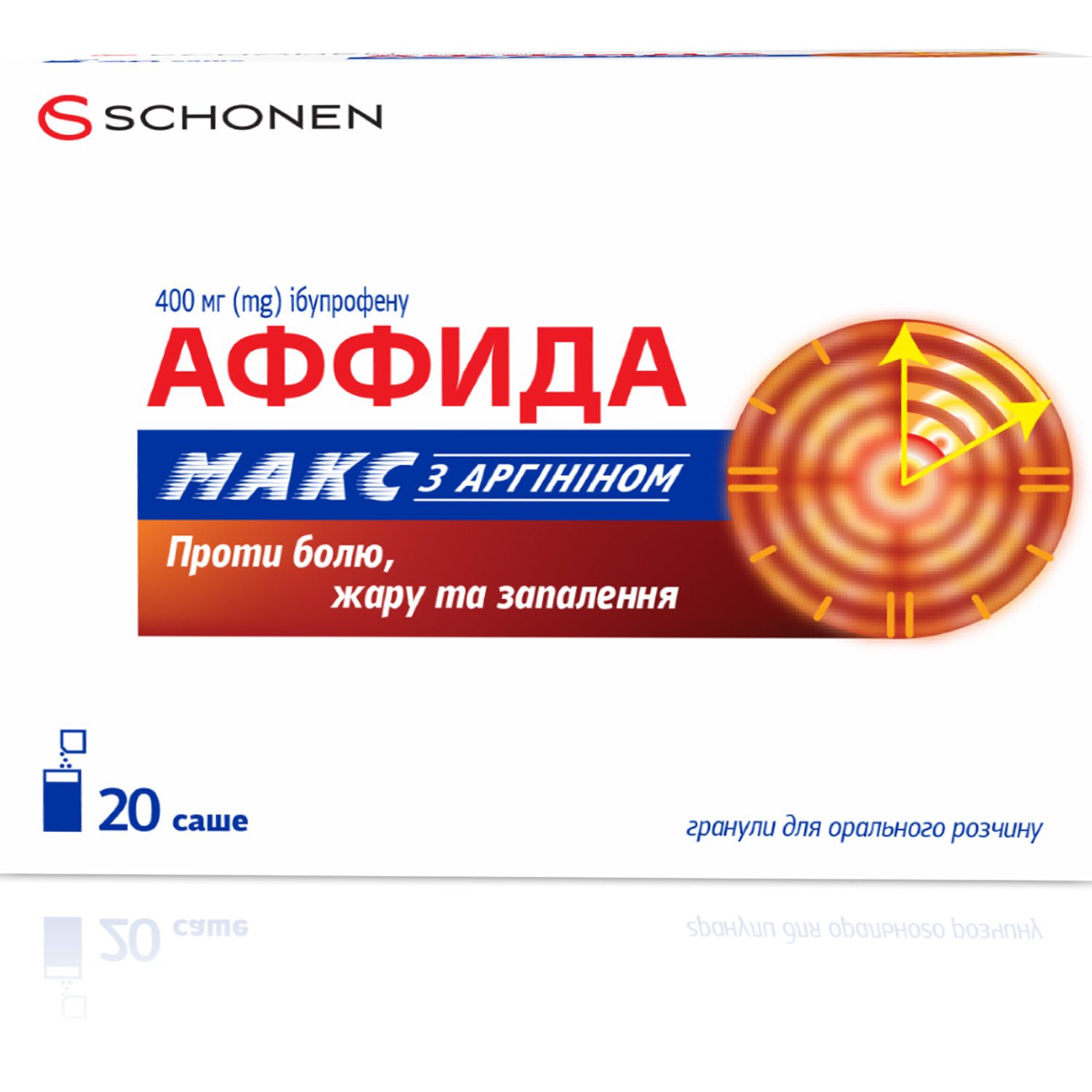
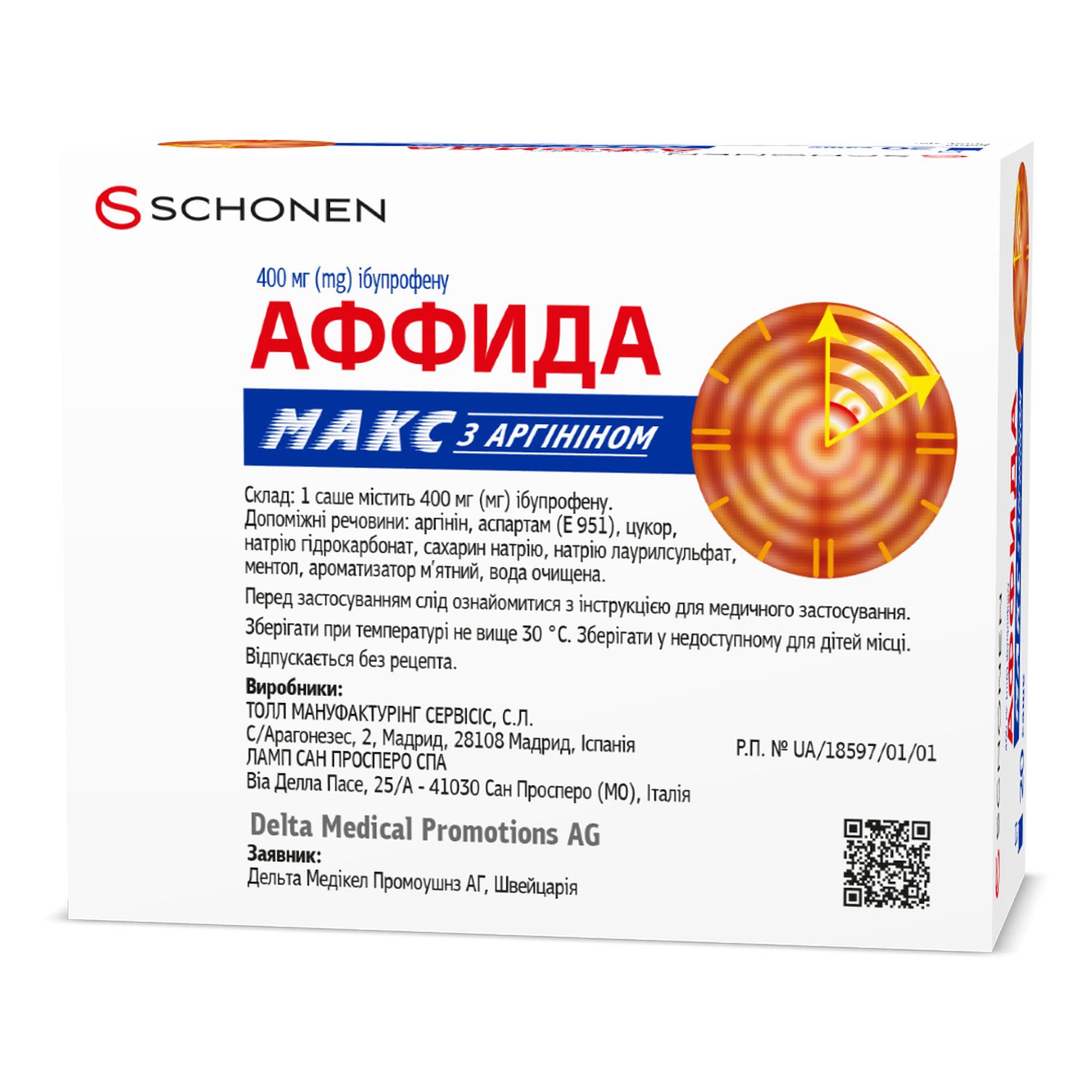
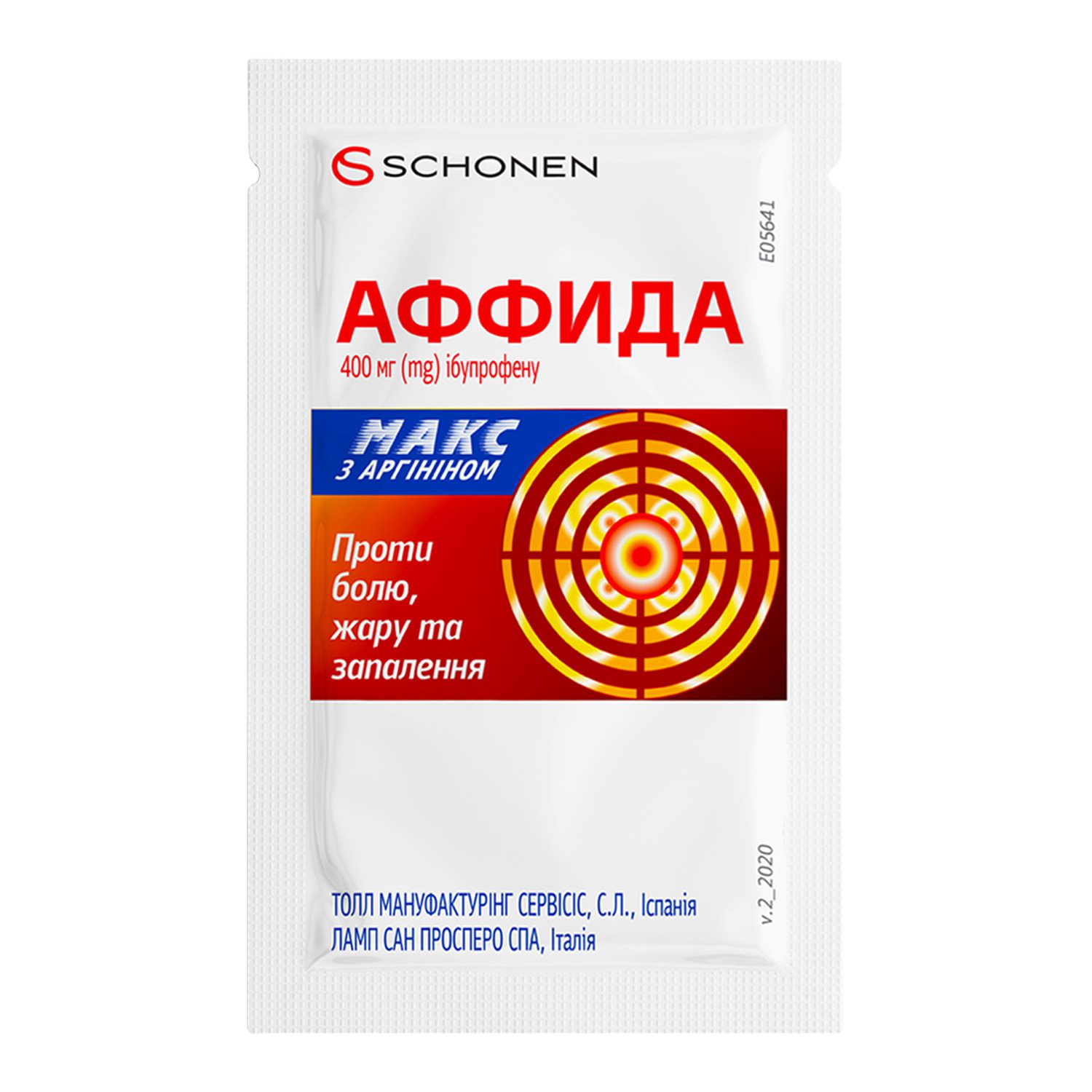
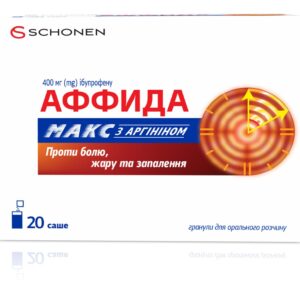


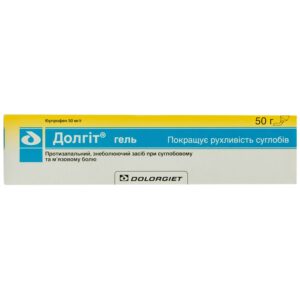

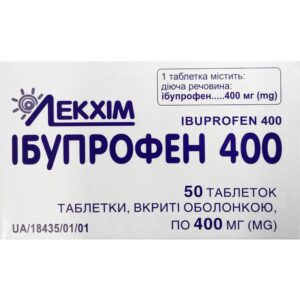
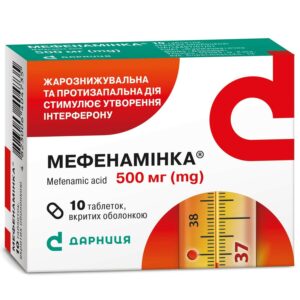
Pavlo –
Effectively relieves annoying and painful symptoms of rheumatoid arthritis. Grandpa drinks, it helps him quickly.